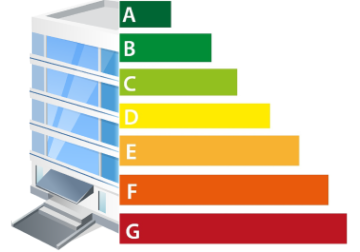
Moldova will take additional measures to improve energy efficiency and modernize state-owned buildings that do not meet the minimum energy efficiency requirements.
In particular, the amendments to the Energy Efficiency Law approved by the Parliament in the first reading provide for this, which will strengthen the state's energy efficiency capacity. According to the amendments, starting from 2024, it is planned to annually renovate central government buildings of more than 250 square meters that do not meet the minimum energy efficiency requirements. The costs are estimated to be between 27 million and 32 million lei. The state is committed to improve annually the energy efficiency of 3% of the number of buildings of specialized central public administration authorities. At the same time, after improving the energy efficiency of these buildings, they will save over 218 thousand kWh of electricity and over 132 thousand cubic meters of natural gas, which is equivalent to over 3.5 million lei per year, for at least 15 years. Other provisions of the draft law envisage setting national targets for energy efficiency, renewable energy sources and reduction of greenhouse gas emissions until 2030, by drawing up a National Integrated Energy and Climate Plan; increasing energy savings by implementing measures able to ensure annually, starting from 2024, new energy savings equivalent to at least 0.8% of average final energy consumption during the period from January 1, 2019 to January 1, 2022. For comparison, Moldova's energy consumption in 2021 was 3,500 GWh. A new element is digitization: the creation of an energy management information subsystem (SIME), through which the use of energy and water, as well as the associated costs in public buildings, will be monitored. Thus, after its implementation, it will be possible to save from 80 million to 300 million lei per year. Another measure envisaged in the draft law concerns the obligation of energy distributors to equip consumers with smart meters, if it is demonstrated that they will be technically and financially beneficial. This will make it possible to reflect energy consumption in real time and create conditions for the application of differentiated tariffs, such as day/night rates. At the same time, the bill provides for strengthening the role of the Energy Efficiency Agency in promoting the state policy on energy efficiency. The Agency will be responsible for implementing the mechanism of energy efficiency subsidies established by the Law on the Energy Vulnerability Reduction Fund. // 16.02.2023 - InfoMarket.







